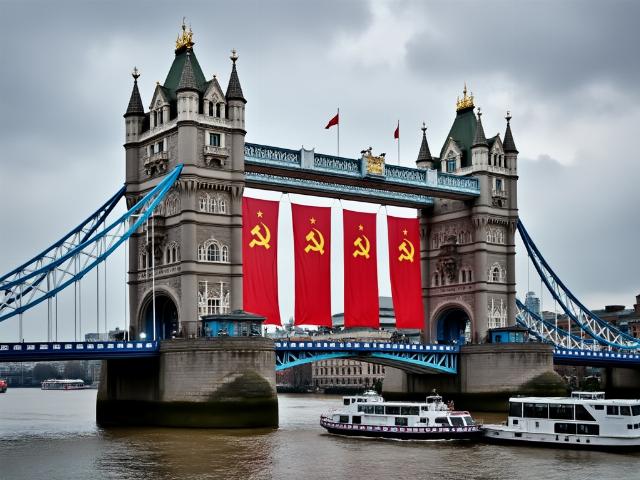by Vince Coyner, American Thinker:

Freedom is never more than one generation away from extinction”—Ronald Reagan
When I grew up, Great Britain was exotic. There were the red telephone booths, Buckingham Palace, black cabs, and, of course, the Bobbies (police) and the Beefeaters. England was the land of Shakespeare, Queen Elizabeth I, and Henry IV. For me, Britain was history incarnate.
Obviously, part of that comes from the fact that, as Americans, we share a great deal of history with the British. Not only did we split from Britain in 1776, but our history continued to stay close until modern times…from the US joining Britain in the fight to end slavery to fighting two world wars together to the British Invasion in the 1960s that brought us the Beatles, the Rolling Stones, and the Kinks.
TRUTH LIVES on at https://sgtreport.tv/
Modern England largely dates back to 1066, when William the Conqueror crossed the English Channel and put the finishing touches on a unification that had been evolving since the Romans abandoned the island in 410 AD. (For clarity, as the terms are often used interchangeably, the United Kingdom (UK) is a sovereign nation comprising England, Scotland, Wales, and Northern Ireland. “Great Britain” is the largest island in the British Isles, containing England, Scotland, and Wales, but not Northern Ireland.)
The 1,000-year span since has seen Britain, like the rest of the world, evolve—always, however haltingly, in the direction of freedom. This journey began with the Magna Carta, agreed to by King John in 1215. A watershed event in Western culture, it limited the King’s powers and declared he was subject to the law, guaranteed church rights, access to an impartial system of justice, and limited taxes.
Although the Magna Carta would have a rough beginning, it was an enormous step in the drive towards liberty. The document would set the stage for Parliament to evolve from councils that advised the King into a representative body that began taking a more active and powerful role in governing.
It was just the first in a line of steps that would make Britain the freest nation on the planet for centuries. The Habeas Corpus Act of 1679 would guarantee the right to trial and demand the state show cause for holding someone. A decade later, the English Bill of Rights would set out Parliamentary rights, the right to petition the king, and the freedom from cruel and unusual punishment. Over subsequent centuries, the British commitment to freedom would expand, eventually including all her citizens, not just the barons who first held King John’s feet to the fire.
Read More @ AmericanThinker.com



